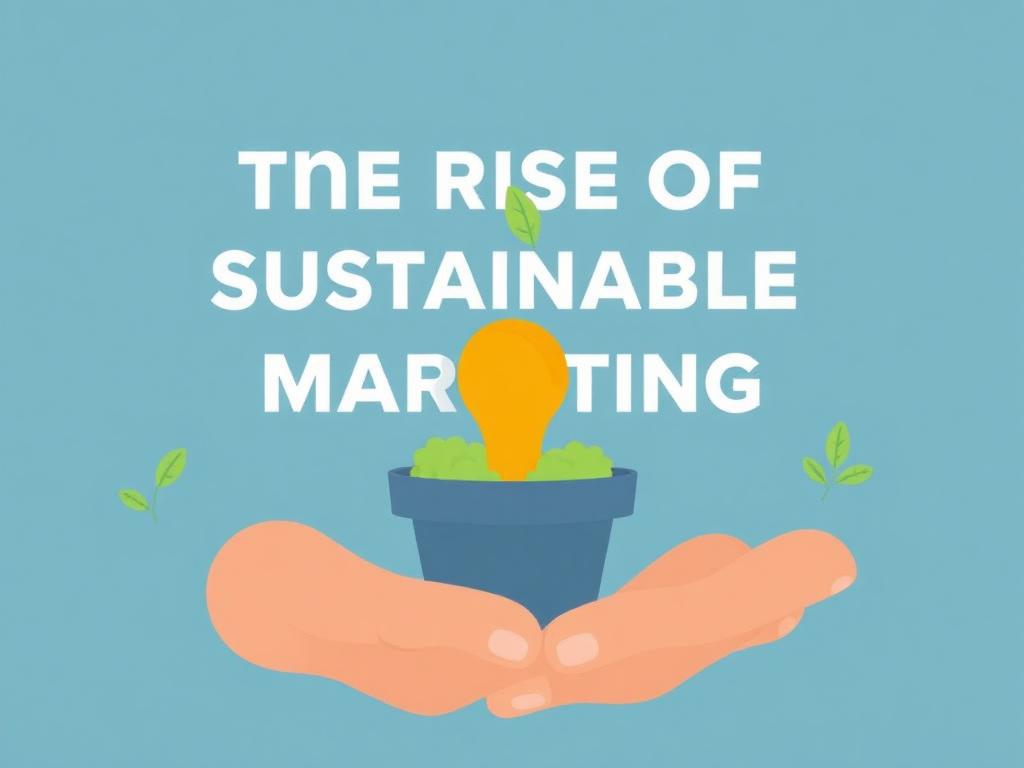A growing number of consumers care about the environment. This shift is influencing how brands market themselves and their products. Companies are now adopting sustainable practices to connect with eco-conscious customers. This article explores how sustainability is reshaping modern marketing.
The Shifting Consumer Landscape: Demand for Sustainability
Today’s shoppers prefer eco-friendly products. According to a recent survey, 70% of consumers are willing to pay more for sustainable goods. This demand has pushed brands to rethink their marketing strategies. They realize that being green isn’t just a trend—it’s a necessity for long-term success.
Marketing’s Evolution: From Greenwashing to Genuine Sustainability
In the past, some brands greenwashed their marketing efforts, making false claims about their eco-friendliness. However, consumers are becoming more educated and skeptical. They can spot misleading information. Genuine sustainability practices resonate more with the audience, building trust and loyalty. Brands must now deliver real, measurable outcomes rather than just buzzwords.
The Business Case for Sustainable Marketing: Profit & Purpose
Sustainable marketing is not just a moral choice; it’s a smart business move. Companies that prioritize sustainability can enjoy several benefits:
- Increased customer loyalty
- Improved brand reputation
- Higher market share
- Lower operational costs due to efficient practices
Embracing sustainability aligns profit with purpose, creating a win-win situation for businesses and the environment.
Understanding the Core Principles of Sustainable Marketing
Defining Sustainable Marketing: Beyond Buzzwords
Sustainable marketing focuses on promoting products and services in a way that benefits society and the planet. This practice goes beyond simple green claims. It incorporates ethical sourcing, reduced carbon footprints, and community support.
The Triple Bottom Line: People, Planet, Profit
The triple bottom line serves as a guiding principle for sustainable marketing. Companies must consider:
- People: How do their practices impact local communities and employees?
- Planet: What is the environmental impact of their products and processes?
- Profit: Can they maintain a profitable business while being socially responsible?
Key Performance Indicators (KPIs) for Sustainable Marketing
To track sustainable marketing efforts, brands should establish clear KPIs. These may include:
- Percentage of recycled materials used
- Reduction in carbon emissions
- Customer feedback on sustainability efforts
- Sales growth of eco-friendly products
Integrating Sustainability Across the Marketing Mix
Sustainable Product Development and Packaging
Designing eco-friendly products starts at the development stage. Brands are now crafting offerings with sustainability in mind.
Examples of Sustainable Packaging Innovations
Innovative companies are exploring options like:
- Biodegradable materials
- Reusable packaging designs
- Minimalist packaging to reduce waste
Life Cycle Assessments and Eco-Friendly Design
Life cycle assessments (LCA) help brands analyze the environmental impact of their products. By examining every stage, from production to disposal, brands can identify opportunities for improvement.
Sustainable Content Marketing and Storytelling
Effective storytelling is crucial for communicating sustainability. Brands need to share authentic narratives that demonstrate their commitment.
Authentic Brand Storytelling and Transparency
Transparency about sourcing and manufacturing processes builds trust with consumers. Brands should openly share their sustainability goals and progress.
Engaging Content Formats: Infographics, Videos, and Blogs
Content marketing can take many forms. Infographics, videos, and blogs that highlight sustainable practices attract attention and engage audiences.
Measuring the Impact of Sustainable Marketing Initiatives
Tracking Key Metrics: Website Traffic, Engagement, and Sales
Brands must keep an eye on their performance. Monitoring website traffic, social media engagement, and sales figures helps measure the impact of sustainability initiatives.
Analyzing Consumer Feedback and Sentiment
Customer opinions play a crucial role. Conducting surveys and reviewing online comments can provide insights into how well brands are perceived regarding their sustainability efforts.
Case Studies: Brands Leading the Way in Sustainable Marketing
Several brands excel in sustainable marketing:
- Patagonia: Known for its commitment to the environment, Patagonia educates consumers on sustainable practices through various campaigns.
- Unilever: This brand focuses on reducing its environmental footprint while offering transparent marketing messages.
Navigating the Challenges of Sustainable Marketing
The Cost of Sustainable Practices
Switching to sustainable practices can involve higher initial costs. Brands must strategize to balance these expenses with their long-term benefits.
Greenwashing Concerns and Avoiding Deception
Brands face the risk of being accused of greenwashing. Authenticity matters, so companies must ensure their claims align with their practices.
Communicating Sustainability Effectively to Consumers
Clear communication helps cut through skepticism. Brands should present their sustainability efforts in straightforward terms, avoiding cluttered jargon that confuses customers.
The Future of Sustainable Marketing: Trends and Predictions
The Growing Importance of Transparency and Traceability
Consumers increasingly demand transparency in sourcing and production processes. Brands that provide clear information will stand out in this competitive market.
Leveraging Technology for Sustainable Solutions
Advancements in technology help brands enhance their sustainability efforts. From renewable energy options to improved manufacturing processes, tech solutions can drive eco-friendly practices.
The Role of Collaboration and Partnerships
Brands can benefit from partnering with organizations focused on sustainability. Collaborative efforts can amplify impact and improve consumer perception.
Conclusion: Embracing Sustainability for Long-Term Brand Success
Sustainable marketing is here to stay. By making genuine eco-conscious choices, brands can enjoy lasting success. Companies must take actionable steps, such as integrating sustainable practices into their core strategies.
Key Takeaways: Actionable Steps for Businesses
- Assess current marketing practices for sustainability.
- Establish clear goals and KPIs.
- Communicate transparently with consumers.
The Future of Conscious Consumerism and its Impact on Marketing
As eco-consciousness grows, brands must adapt. Embracing sustainability will not only help the planet but also ensure long-term profitability. Companies that rise to this challenge will undoubtedly thrive in the changing market landscape.
